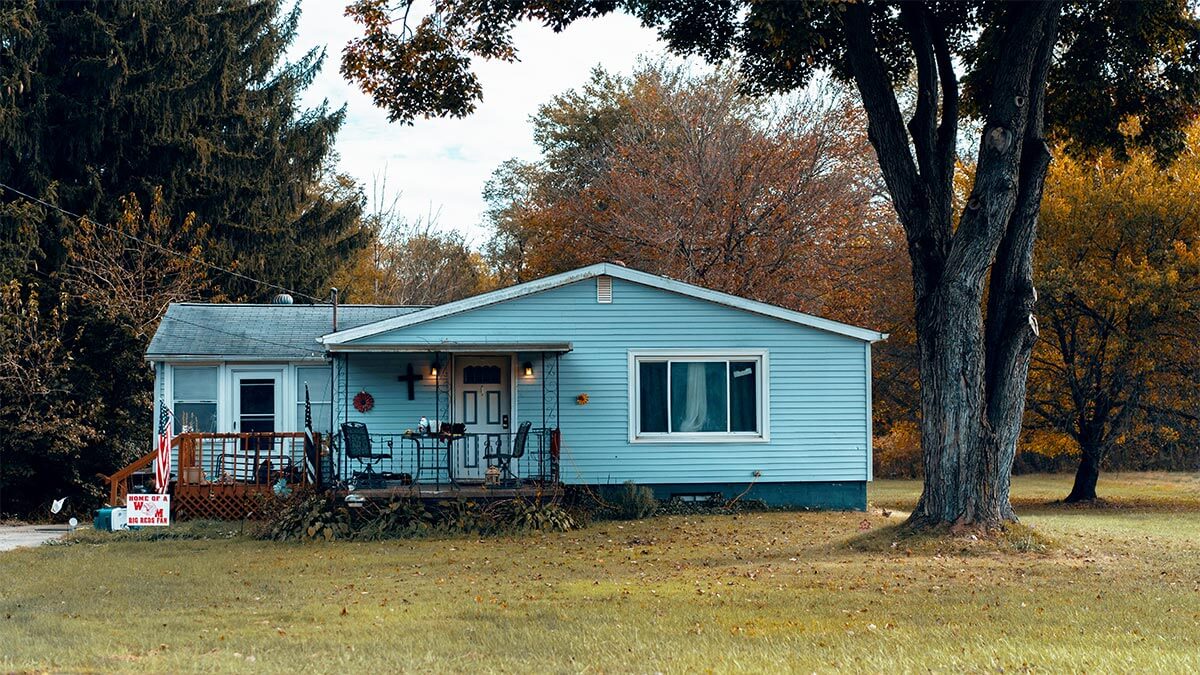In the United States, 66% of people worry that a major recession is right around the corner. While a recession can be worrisome and can lead to inflation and higher prices for goods and services, a recession can also be the best time to sell a home.
If you are considering selling your home, it is important that you understand how the economy will impact this decision. Do you want to learn more about the benefits of selling a home during a recession?
Keep reading this guide for everything you need to know about the reasons you should try selling a home during a recession.
Discover your home’s worth online for free in minutes!
Utilize Your Equity
If you are wondering whether you should sell your home during a recession, the answer is yes! One of the biggest benefits of selling your home during a recession is that it allows you to utilize your equity.
Because mortgage applications have increased over the years, it can be difficult to buy a home for the first time. When you have equity from the sale of a previous home, you can utilize this by making a move to a new property.
This way, you can immediately put the money from the sale of your home into a new property that works better for your needs.
Avoid Capital Gains Taxes
Another great reason why you should sell your home during a recession is that it can help you avoid high capital gains taxes. Capital gains are also known as the profits you make when you sell real estate or other types of taxable assets that have increased in value.
If your home went up in value significantly over the time you owned it, you may owe thousands of dollars in the upcoming years’ taxes.
Before a recession hits, home prices are typically at an all-time high. This means that selling your home before a recession will result in a higher profit between the purchase price of the real estate and the sale price, which can increase your capital gains taxes.
Because there is a chance that your home will lower in value when you sell it during a recession, it will help you save money on these taxes.
On the other hand, if you sell your home for less than you paid for, this is known as a capital loss. This is deductible on your tax return, so you can save money on your taxes even if the price of your house goes down!
Pent-Up Demand for Homes
Next, a recession can lead to a pent-up demand for homes, which makes it a great time to sell.
When there are fewer homes on the market, this is known as a seller’s market. The low inventory of suitable housing increases the competition for your home when you are selling a home during a recession.
Before a recession, it can be difficult for people to get into a home, especially first-time homebuyers. Similarly, there is a low inventory of starter homes. People that are qualified to buy a home may not be able to find something that fits their needs without building a new home.
Because so many people want to buy homes but are unable to, they will jump at the opportunity to buy a home during a recession.
There are also more millennials that are desperate to buy houses. This tide of millennials wanting to buy a home will help cushion the housing market during a recession, which will make the impact on the housing market relatively small.
Plus, recessions typically lower the interest rates for mortgages. This makes it more affordable for many buyers to purchase a home and will encourage them to check out the homes available on the market.
Lastly, there are often fewer homes on the market when you are selling during a recession. This is because many people panic and worry that they will lose their jobs or that they will not be able to afford the increase in prices for goods and services.
Because of this, most people will hold onto their properties rather than selling. This could be a great option for you if you own a nice home that would attract many potential buyers.
Avoid Expensive Repairs
Selling your home during a recession can also help you avoid expensive and unnecessary repairs. While many people think that you need to make huge upgrades to be able to sell your home, there are no renovations that will add more value to your home than they cost.
Because of this, you can avoid wasting your time on projects that won’t have a high return on your investment.
Instead, you may want to focus on the aesthetics of your home. Simple things like improving your curb appeal and changing out light fixtures in your home will help you generate more buyer interest for as little money as possible.
Price Declines Will Be Small
When you sell your home during a recession, there is a chance that you will see some declines in price. This is because home prices peak right before a recession when it is a seller’s market and there are fewer homes available.
In past recessions, like The Great Recession, there was a significant housing recession. This resulted in the housing bubble popping and homes dropping to record low prices.
However, this is not typical for most recessions. While many people are waiting to buy a home until the market crashes, a recession will not likely cause as big of an impact on the housing market as it did during The Great Recession.
This means that declines in housing prices will be small if there even is a decline in price. If you sell your home during a recession, you will be protected and will still be able to sell your home for a good price.
The overall impact of a recession on the housing market will depend on where you live. If you live in a desirable area and have a clean, well-maintained home, you will likely be able to sell your home no matter the state of the economy!
So, if you currently live in a family-friendly neighborhood with low levels of crime, you will still be able to find plenty of interested buyers if you have the right real estate agent.
Easier to Find a New Home
It is also typically easier to find a new home when you are selling your home during a recession. As was mentioned before, it can be difficult for people to secure a loan from a bank during a recession.
However, if you sell your home before purchasing a new one, you will have home equity that can immediately go toward the purchase of your new real estate! This makes it easier to be qualified for a home.
If you are looking to upgrade or downgrade to a new property, doing this during a recession is a great option!
Many Options for Investors
Finally, selling your home during a recession makes it easier for you to find investors that are looking for real estate!
When there are more investors looking for homes in your area, you can take your pick from each of these options. This way you can get the best deal for your home.
Often, investors will pay for homes with cash. This will ensure that you get all of your money from the sale of your home at once! It also makes it easier for you to put this money straight into other investments, like a new home.
If you want to learn more about the process of selling your home to a cash investor, iBuyer can help! You can start by simply entering your home address into our website to get a free home value estimate.
Then, our team will help you find iBuyers that are interested in your house! This way, you can filter through each of your options to find the best deal for your home.
Conclusion
As a homeowner, it can be difficult to know how the state of the economy will impact your plans to sell your home. Learning more about these benefits of selling a home during a recession can help you decide whether or not it is the right choice for you.
If you want to sell a home during a recession quickly, iBuyer.com can help! We connect homeowners with buyers across the country.
Submit your address today to get an accurate estimate of your home value get a no-obligation offer.




